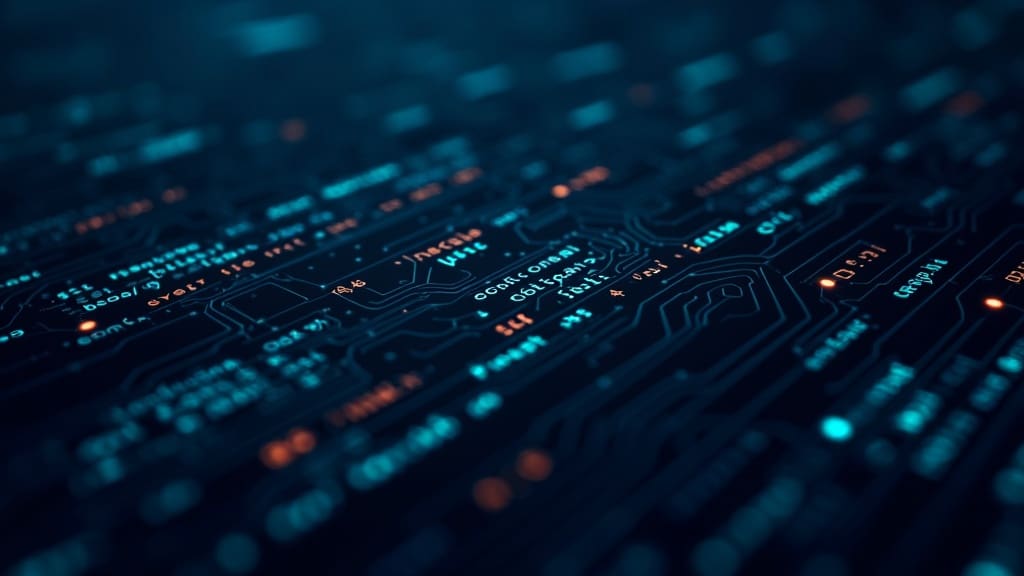AI is making waves in software engineering, but the buzz isn’t always clear about what this means for people who write code every day. As someone who’s worked with code for years and spends a lot of time helping others adapt to tech trends, I see the same questions come up over and over. Are we heading toward a future where human coders are out of the picture? Or is there a different kind of switch-up happening, one that actually puts more value on the people behind the keyboard?

The Rise of AI in Coding
AI-assisted coding is not some far-off idea; it’s already changing daily workflows at tech giants and startups all over the globe. Major tools like GitHub Copilot, ChatGPT, and Tabnine are working behind the scenes or directly suggesting code, even writing complete functions on their own. According to industry reports, AI now generates a sizeable chunk of routine code at organizations such as Microsoft, Amazon, and Google. Some internal studies put this at 30% or higher for projects that lean into these tools.
That number might surprise some, but it tracks with what I’m seeing and hearing from peers. Every day, engineers are using AI to churn out code faster than ever before, and it’s not just the basic framework stuff. These systems create web apps, comb through old projects to track down bugs, and automatically document full APIs. From a workflow perspective, engineers who know how to ask thoughtful questions can significantly reduce their workload by condensing days of work into a handful of well-written prompts.
This growing reliance on AI tools demonstrates just how quickly the industry is changing. Coding teams that are open-minded and adaptable tend to find these tools reduce frustration and spark more creativity. However, it’s important to remember that most code produced this way still needs a skilled eye to ensure the job is done right. About 85% of engineers say they have to manually review, tweak, or sometimes even totally rewrite AI-generated solutions, especially before putting anything into production.
What AI Does Well in Programming
Certain aspects of coding are a perfect match for AI. Here’s where I see AI tools shine brightest:
- Repetitive Code Generation: Knocking out thousands of lines of boilerplate or setup code. Things like model classes, tests, or REST endpoints can be created in seconds.
- Refactoring and Bug Spotting: Looking for anti-patterns, suggesting improvements, or helping developers clean up complex codebases. AI spots things that often get missed in manual reviews, thanks to all the data it’s learned from.
- Writing from Descriptions: Turning simple English (or another language) into working code. You describe what you want, and AI offers a reasonable starting point.
Junior engineers and self-taught coders are increasingly relying on AI to move past sticking points, freeing them up to dig into more challenging problems. If you’re concerned this might make developers lazy, consider the other side: most AI-generated code still demands a well-trained developer to finalize and polish it. This relationship between AI and human developers is making the work both more efficient and, in many ways, more interesting.
What Sets Human Software Engineers Apart From AI
There’s still plenty AI can’t handle (at least for now), and these gaps are key reasons why skilled engineers will remain in high demand as tech keeps evolving.
- Complex Decision Making: Real-world projects aren’t just about getting something that works. Every feature, fix, or redesign involves trade-offs: security versus speed, user experience versus system load, and business deadlines versus technical debt. Humans understand how to handle those choices, thanks to judgment and business context.
- Creative Problem Solving: AI is limited to the solutions it’s encountered through training data. Sometimes projects need a fresh approach or experimentation that no algorithm can predict. Many product breakthroughs result when someone tackles a new problem with insight or intuition.
- Understanding Messy Human Context: Translating open-ended business requirements—such as “the dashboard needs to inspire confidence”—takes empathy and experience. While AI can guess, a human knows what matters.
Development teams that team up with AI often find the process faster and more rewarding, especially when someone is applying common sense and critical thinking along the way.
How AI is Changing the Software Engineering Career Path
The typical day in the life of a coder is anything but typical. Several new patterns are emerging, all of which are important if you want to keep your career headed in the right direction.
- Switch from Syntax to Strategy: Routine syntax, setup, and popular design patterns are just a button click away. Engineers who spend more time refining problem definition, systems architecture, and stakeholder communication are in the best spot to move up.
- More Time for High-Level Work: With less time devoted to the repetitive stuff, there’s now more opportunity to focus on system architecture, code quality, security, and even mentorship.
- Growing Demand for Domain Expertise: Truly understanding a company’s product space and being able to model it in software is something AI can’t touch yet. From fintech to education, industry know-how is more sought-after than ever.
This isn’t about going up against AI. The success stories I see come from folks who are curious, who use new tools to their advantage, and view AI as a copilot in their workflow. That curiosity is what’s going to keep you relevant, no matter how the landscape mixes it up.
Common Challenges (And How to Stay Ahead)
Adapting to AI in software engineering isn’t a smooth ride. These are the most common pitfalls and some tips to stay ahead:
- Quality and Reliability Concerns: AI can suggest code that “runs” but doesn’t fit business needs or has hidden bugs. Manual review, plenty of tests, and seasoned engineers are vital.
- Keeping Skills Fresh: It’s easy to get comfortable. But those who keep learning new tools, frameworks, and deeper computer science concepts won’t get left behind if AI handles the basics.
- Job Uncertainty: Hearing that AI “writes code” can be unnerving. The shape of the job may shift, but curious, adaptable engineers remain essential—whether it’s coding, product shaping, or leading teams.
Practical Ways to Future-Proof Your Career
If you’re wondering how to adapt, here are actions that’ll keep you thriving:
- Jump In with AI Tools: Spend time with Copilot, ChatGPT, or similar software. Get better at prompt writing and evaluating AI-generated code. Treat them as power-ups rather than rivals.
- Build Problem-Solving Muscles: Strengthen your skills in debugging, system design, and solution architecture. These are challenging tasks to automate.
- Grow Deep Domain Knowledge: Become an expert in a specific area, whether it’s finance, healthcare, or something else. Experts here are even more valuable now.
- Sharpen Communication: Clear documentation, team leadership, and working closely with users are skills that won’t be replaced by AI anytime soon. These abilities will only become more critical as teams mix human and AI power.
Real World Applications & Stories
In real life, companies that make the most of AI in development aren’t laying off engineers. They’re hiring people who can bridge the space between business problems and technology. For instance, a friend of mine at a startup uses AI to simplify laying out data pipelines. Their engineering team now spends more energy fine-tuning performance, listening to user feedback, and following the product as it grows in the real world, rather than grinding through repetitive tasks.
I’ve personally helped teams that felt stuck in repetitive projects. After introducing AI, the work became less exhausting, and senior engineers could spend their energy tackling big-picture problems (and mentoring newcomers, rather than staying buried in the details).
- Startups: Using AI to bring MVPs online in no time, then calling on engineers to refine, optimize, and help things scale up.
- Enterprises: Large banks and insurance companies leverage AI tools to automate routine tasks, while still requiring skilled engineers for security, data checks, and compliance.
- Open Source: Open source contributors now use AI suggestions to move faster on documentation, tests, and bug fixing, but strong human leadership is still needed to keep work on track.
Frequently Asked Questions
Still wondering what this means for your future as a software engineer? Here are some of the questions I hear most often:
Q: Should I still learn to code if AI can generate code now?
A: Absolutely. Understanding the fundamentals allows you to review, tweak, and make real-world systems. AI is a tool, but foundational skills set you apart.
Q: Will entry-level jobs disappear?
A: The junior role landscape is shifting, and some simple jobs might become rarer. Building skills in testing, domain modeling, and cross-team work will help new grads and self-taught devs stand out.
Q: How can I use AI to my advantage?
A: Experiment with code suggestion tools and weave them into your work, but always review for security and speed. Grow skills in negotiation, UX, and areas AI can’t yet reach.
Your Next Step Toward AI-Powered Success
AI is changing the game for software engineering, but it’s not a threat if you stay curious and flexible. The more you blend AI tools into your daily process and step up your problem-solving chops, the more chances you’ll uncover even as the industry changes.
If you want some one-on-one help on how to future-proof your career, stand out in an AI-powered market, or launch a purpose-driven AI business, I’m here for you. Click this link to book a call and let’s map out a plan for building freedom and flexibility through the AI-Powered Conscious Entrepreneurship Framework—no burnout—just smart moves and support from someone who’s been through it.
